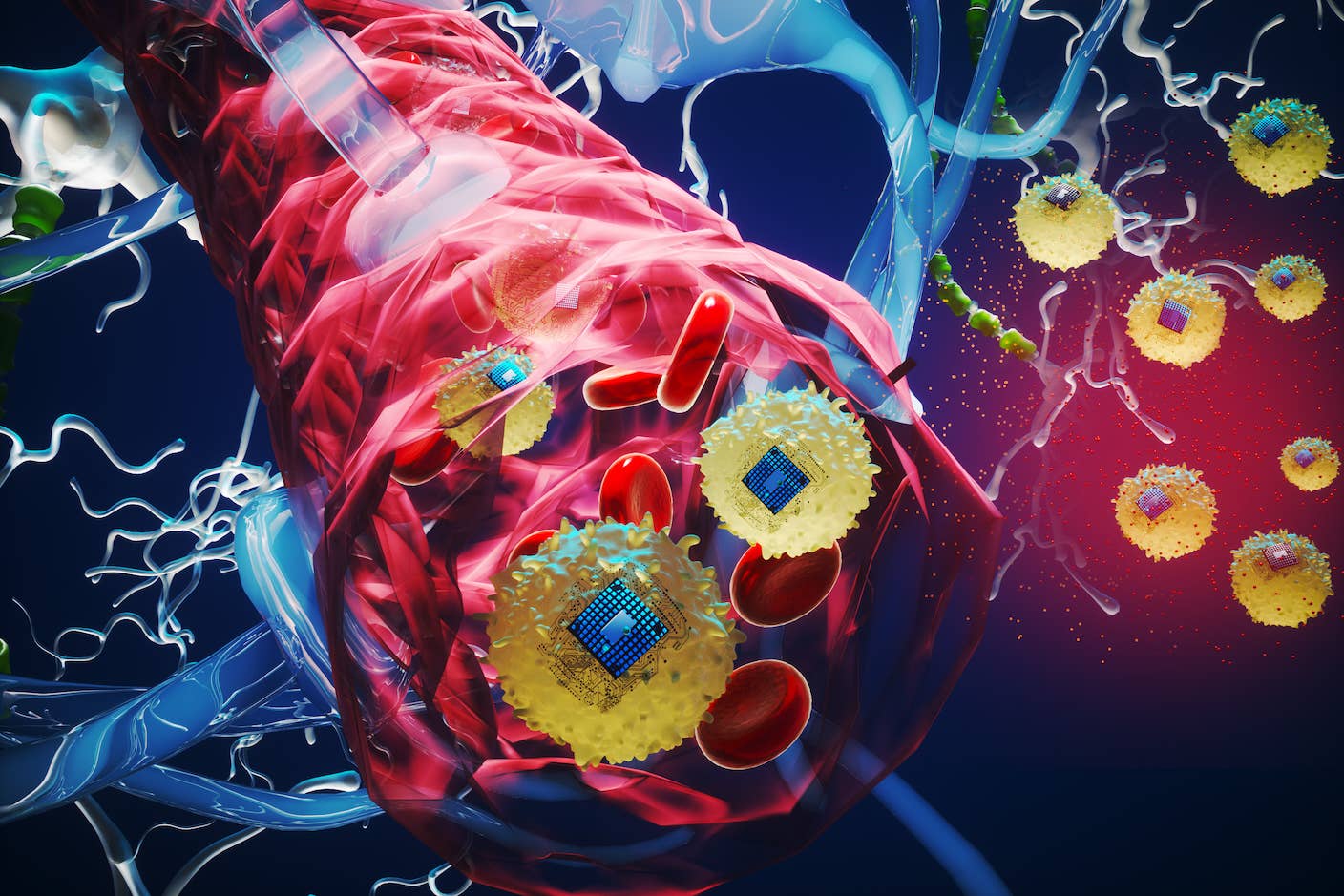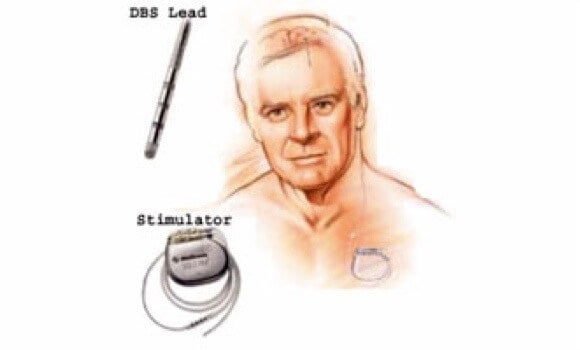Deep Brain Stimulation Used To Treat Early Stage Parkinson’s Disease

Share
A device that delivers electrical shocks directly into the brain has been shown to alleviate symptoms in people with early stage Parkinson’s disease better than the best treatments being used today. Normally reserved as a last resort for patients with severe symptoms and for whom drugs are ineffective, the deep brain stimulation’s newly found effectiveness could promote it to the first line of attack against the disease at the earliest detection of symptoms.
The trial included 251 people diagnosed with Parkinson’s disease who were followed for two years at 21 centers in France and Germany. As a group, the participants had an average age of 52 years and had lived with the disease for an average of 7.5 years – a young group considering the general Parkinson’s population has an average age of 60. The participants were broken up into two groups: one receiving neurostimulation and the “best medical therapy” at their treatment center while the other group received only the best medical therapy. The stimulator was made by Minneapolis-based Medtronic.
Those that got neurostimulation therapy showed much greater improvement. The researchers attempted to assess changes to overall quality of life by measuring how the treatments affected daily activities such as speech, handwriting, dressing and walking, emotional well-being, stigma, bodily discomfort, social support, cognition and communication. Patients receiving neurostimulation improved in all of these categories except communication. Conversely, those who received medical therapy only improved in the daily activities and stigma, a measure of lacking social acceptance, categories. Another set of tests evaluating general motor skills also showed that people receiving neurostimultion performed better than those who were receiving medical therapy only.
Be Part of the Future
Sign up to receive top stories about groundbreaking technologies and visionary thinkers from SingularityHub.


The promising results could give doctors a new tool to treat Parkinson’s disease in its early stage. “These results signal a shift in the way patients with Parkinson’s disease can be treated,” Günther Deuschl, Professor of Neurology at Christian-Albrechts-University and lead investigator of the study said in a press release, “and prove that deep brain stimulation therapy can improve patients’ quality of life even in the early stages of Parkinson’s disease, when fluctuations and dyskinesia just start and clinicians traditionally solely rely on drugs.”
The study wasn’t all good news, however, as nearly 20 percent of those who received neurostimultion experience “serious adverse events” related to surgical implantation of the device or its stimulation activity. These included one case of brain abscess, one of edema, and one of impaired wound healing that resulted in scarring. Depression was also seen more frequently in the neurostimultion group, although the researchers didn’t speculate why that might be so.
Deep brain stimulation continues to break new ground in treating neurological disorders. In addition to Parkinson’s disease, essential tremor and dystonia are other movement disorders being treated with DBS. And researchers are currently investigating ways depression, epilepsy, and chronic pain can be alleviated with DBS. Alzheimer’s disease also joined the group of disorders treatable with neurostimulation this past October when a woman’s cognitive abilities greatly improved after receiving a brain pacemaker. Over 30,000 people around the world with Parkinson’s disease are being treated with neurostimulation. The current study means more people could turn to neurostimulation earlier, while their symptoms are milder, and stave off the onset of this debilitating disease.
Peter Murray was born in Boston in 1973. He earned a PhD in neuroscience at the University of Maryland, Baltimore studying gene expression in the neocortex. Following his dissertation work he spent three years as a post-doctoral fellow at the same university studying brain mechanisms of pain and motor control. He completed a collection of short stories in 2010 and has been writing for Singularity Hub since March 2011.
Related Articles

This Light-Powered AI Chip Is 100x Faster Than a Top Nvidia GPU

How Scientists Are Growing Computers From Human Brain Cells—and Why They Want to Keep Doing It

These Brain Implants Are Smaller Than Cells and Can Be Injected Into Veins
What we’re reading

